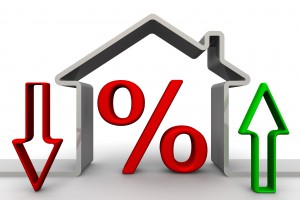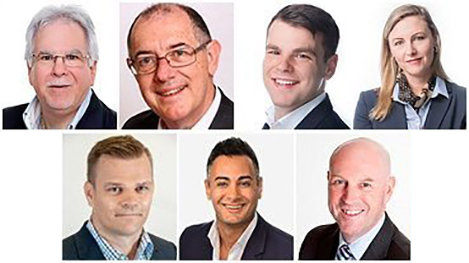First-time property buyers sometimes forget that the purchase price is not the end of their home ownership financial outgoings.
There are a number of expenses that will continue for as long as you own the property – and even after the mortgage is one day paid off.
So, if you’re in the market for your first investment property, you must know exactly what you, as the owner, will be liable to pay (sometimes each and every year), because not all expenses can be passed on to tenants.
1. Property Taxes
One of the biggest taxes that Australian property owners pay is stamp duty, which is a State based tax, due at the time of settlement. 
There is also potentially Capital Gains Tax to pay when you finally sell the property – hopefully in many years or decades’ time!
While these taxes are the most obvious, property investors and homeowners are also responsible for other taxes throughout the ownership period of their home or investment.
The principal ongoing taxes are:
- council rates, which are assessed on the current value of the property and can change over time to reflect the home’s change in value (which is usually up)
- Water rates and
- Land Tax – the amount varies from State to State, depending upon the total value of all the property you own in a particular state as at 31 December, minus exempt landsuch as your home.
2. Home Insurance
While tenants are responsible for their own contents insurance, investors must have adequate insurance to protect the property as well as its occupants.
In Australia, it’s common for homeowners to take out comprehensive building and contents insurance, which will cover the cost of rebuilding the property, inside and out, if destroyed by a fire, for example.
Strata insurance is a little different and is usually paid out of an investor’s body corporate or owners corporation levies, however, it is still an expense.
Investors should also seriously consider taking out a landlord insurance policy, which can provide cover for such things as malicious damage by a tenant, loss of rent, and public liability insurance if a tenant or a visitor injures themselves while at their rental property.
3. Mortgage Interest
The amount you’ll pay in mortgage interest over the duration of your mortgage depends upon the length of time you take out your mortgage (or the number of years that it will take you to repay your home loan), the frequency of payments and the interest rate. 
The interest rate on your mortgage can fluctuate over time, depending upon the type of mortgage you select, such as a variable rate, and whether interest rates move up or down – which they regularly do depending on economic factors.
Let’s consider a $500,000 mortgage taken out over a 30-year term and with a 5.29 per cent interest rate.
Over the life of the loan, which is 30 years, if using principal and interest repayments, the homeowner or investor will repay the principal amount of $500,000 but also an additional $498,430.86 in interest!
4. Property Maintenance
As properties and their fixtures and fittings age, homeowners and investors need to spend money to keep their properties in tip-top shape.
This may include new appliances such as fridges or ovens, but can also include new carpet, a new balcony or a new roof.
That’s why it’s vitally important to budget every year for ongoing maintenance.
Addressing maintenance issues as they arise can help to safeguard you against any major expenses down the track.
5. Real Estate and Legal Fees
The mere act of buying or selling a home comes with costs with the seller generally faced with paying commission to the sales agent. 
Both buyers and sellers usually also pay legal fees to cover the transfer of title and conveyancing, which varies depending upon the lawyer and any additional searches that may have been undertaken.
And of course there will be the ongoing property management fees if you’re an investor – but of course these will be tax deductible as they are a cost of your ongoing property investment business
As you can see, owning a home or an investment property comes with it a raft of ongoing expenses that unfortunately don’t usually reduce over time.
This means that when considering property as a investment, you must calculate all of the ongoing costs so your property journey is not hamstrung by cash flow issues that may prevent you from growing your portfolio.
Property investment can be a lucrative wealth creation strategy but you must go into it with your financial eyes wide open.
IF YOU’RE ALREADY AN EXPERIENCED PROPERTY INVESTOR OR YOU WANT TO “FAST TRACK” YOUR SUCCESS…
Here’s your chance to invest 2 powerful days and learn renovation and development strategies that experienced property experts are using around Australia to “manufacture” capital growth and generate strong rental returns, so that they can win in today’s challenging property markets.
TAKE YOUR PROPERTY INVESTING TO A WHOLE NEW LEVEL BY JOINING ME IN OCTOBER AT MY…
PROPERTY RENOVATIONS & DEVELOPMENT WORKSHOP.

What’s it all about? Click here and find out more.
Maybe now it’s time you stepped up and played in the big league by getting started in property renovations or development.
This is the course where other “experts” who are now teaching got their education. Click here find out more and reserve your place
Michael Yardney
………………………………………………………….

No comments:
Post a Comment